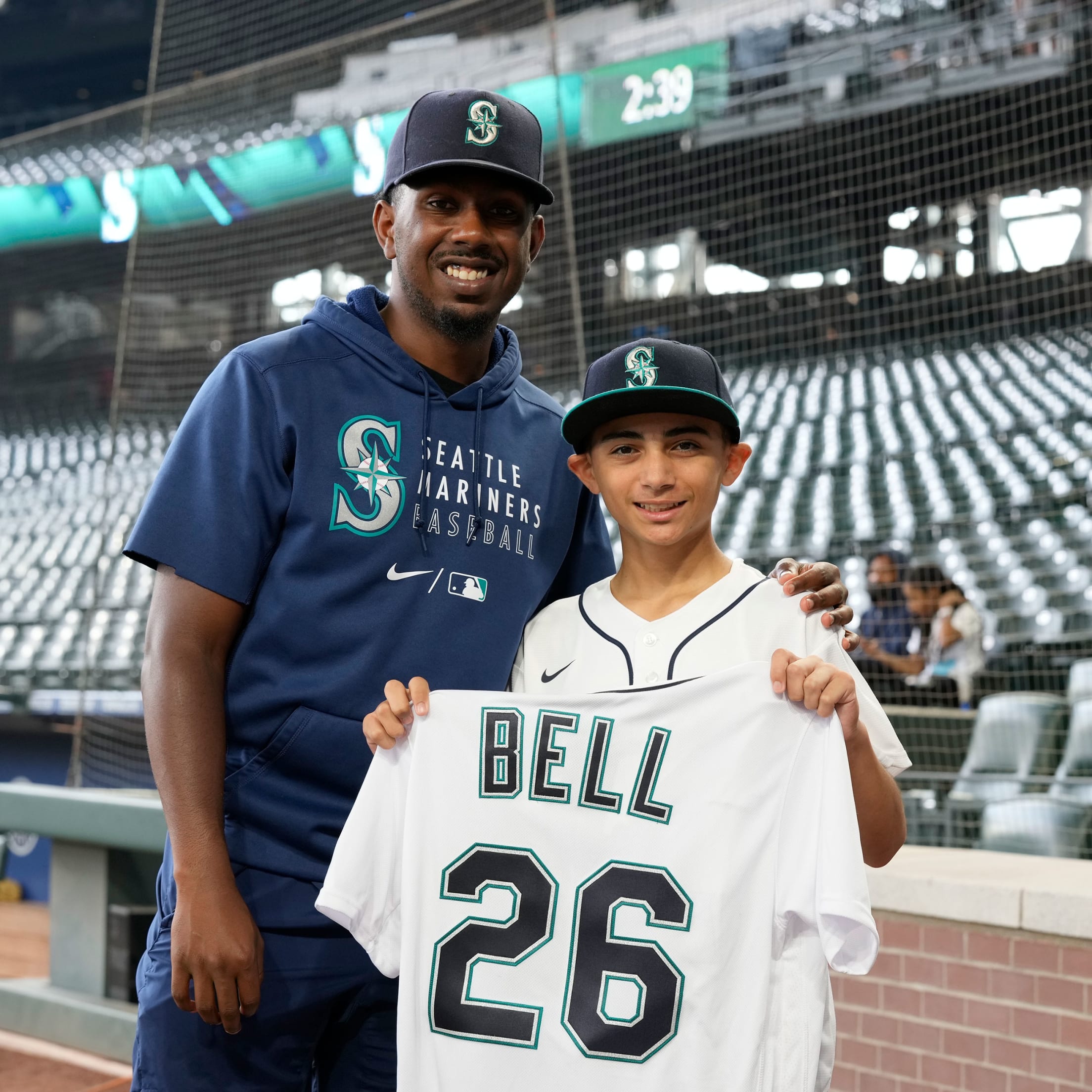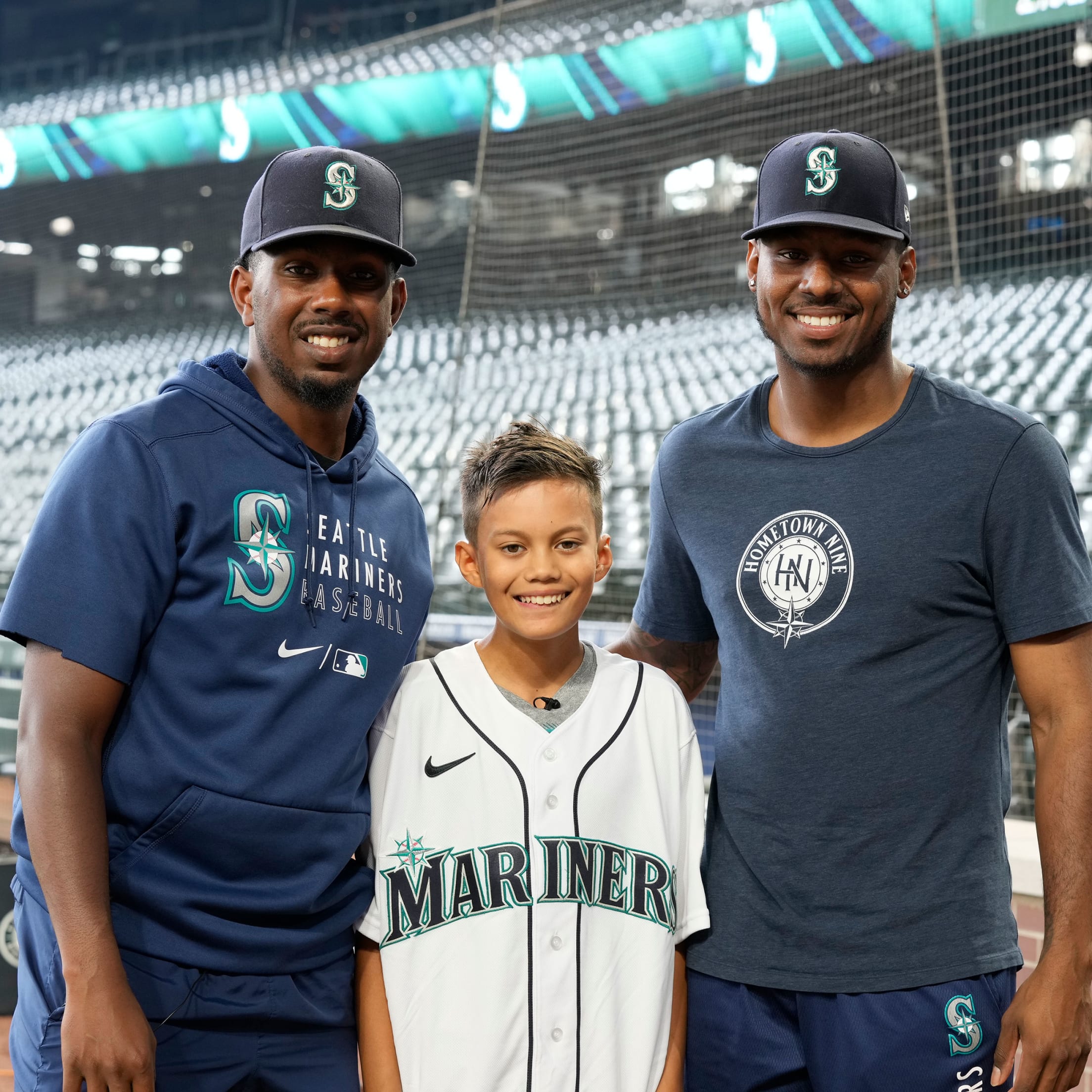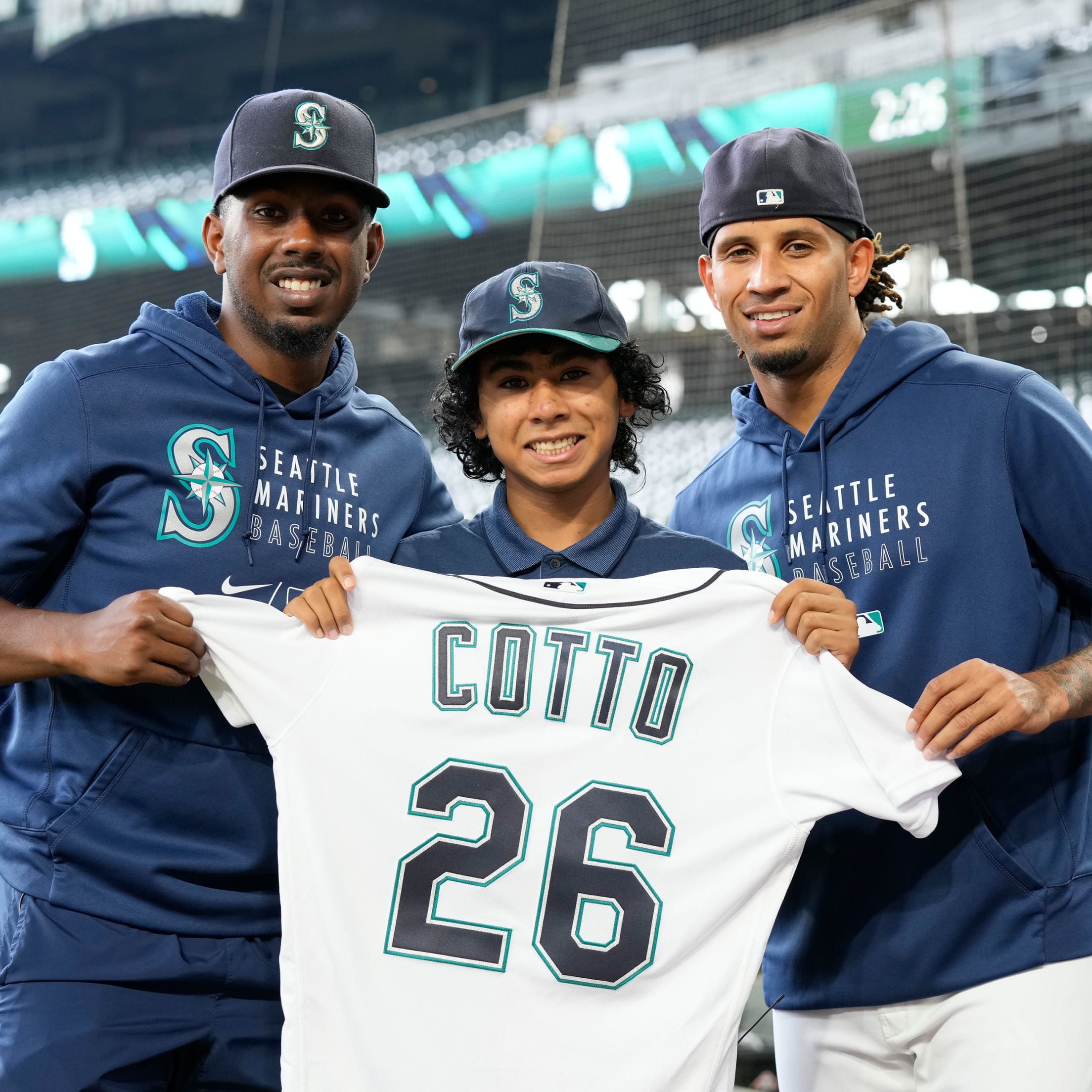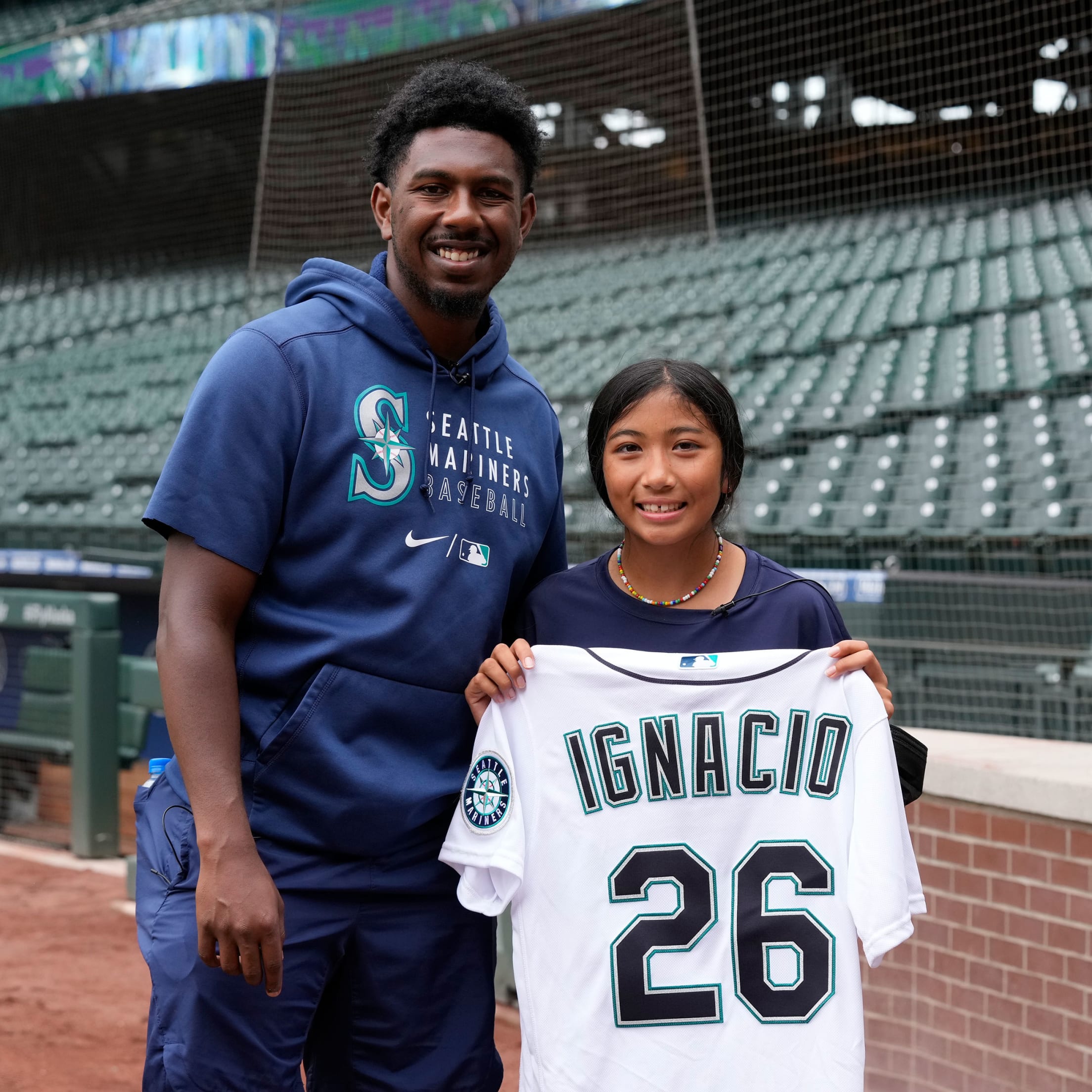“Being a part of the Hometown Nine would allow me to represent more minority kids on the baseball field, especially those participating in select/elite baseball.”
Diego Bell, an eighth-grader at Catherine Blaine, is no stranger to overcoming adversity and channeling pain into a positive. Diego’s birth father tragically passed from Leukemia when Diego was just one year old. His mother struggled for many years to provide Diego with the resources to continue to play baseball, which is why they applied for the Hometown Nine program. Upon reflection on how his father’s passing affected him, Diego wrote “Not having a dad around in my early years was really difficult. I watched other kids play catch with their father and it sometimes made me feel like something was missing.” Despite having lost his birth father, Diego gets support from his mother and his step-father who recently adopted him. Growing up in Magnolia, Diego has experience with being the only kid of color on his baseball team which has left him feeling isolated but inspired to change the culture of baseball for the future. “I go to school in a primarily white neighborhood and for most of my baseball career I was maybe one of only two kids who were minorities on my team. It has been hard as most of the kids on my team are able to afford to play select baseball,” says Diego. While he has the passion to commit to select baseball, he was never able to afford the cost of playing and training. Diego and his family felt that the Hometown Nine was a perfect fit for his experience. He wrote “I want to be part of the Hometown Nine because the fellowship would give me the opportunity to learn from professionals about how to be successful, not just with baseball, but with my education as well. In addition, being a part of the Hometown Nine would allow me to represent more minority kids on the baseball field, especially those participating in select/elite baseball.” Diego has the goal of playing for the University of Washington baseball team and has aspirations as a future leader. “We have to teach each other, listen to each other, and accept that the generations before us made mistakes. Once we can acknowledge what has happened in the past, then we can begin to make changes in the future. I`d like to see more kids of color playing baseball at all levels.”










